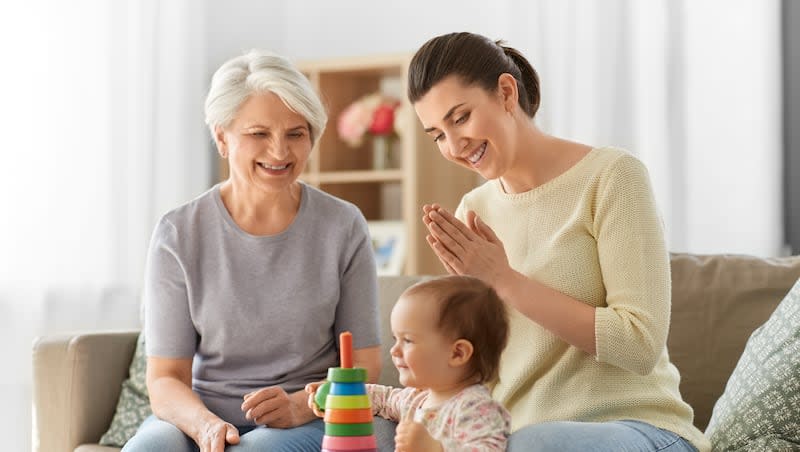Grandparents are crucial to mothers’ mental health, study finds

Amid the perks of being close to grandparents, in addition to free meals and babysitting, is a positive impact on the mental health of new mothers, a new study found.
The study, conducted by Finnish researchers and published in the peer-reviewed journal Population Studies, found that mothers, particularly those of children 12 and younger, are less likely to experience depression if they have parents younger than age 70 who are employed and are relatively healthy. The physical proximity to grandparents also seems to impact a mother’s mental health: Mothers who live within 6.2 miles of their parents are less likely to be depressed. The study tracked mothers and children from 2000 to 2014.
“Having healthy grandparents around can provide valuable social support and foster a sense of community for mothers,” Ampadu G. Gifty, a psychologist at Montefiore Medical Center’s Child Outpatient Psychiatry Department, told Good Housekeeping.
Grandparents help both children and mothers: They offer socialization for the children and lighten the parents’ load. And the researchers discovered a particular window in which their support is especially helpful to mothers — when the mother is in the process of separating from a partner, even more so than after a separation has occurred.
“We had assumed that grandparental support could alleviate the adverse mental health effects of separation and single parenthood, thus leading to larger differences in mental health by grandparental characteristics after separation,” Niina Metsä-Simola, a lecturer at the University of Helsinki, who worked on the study, told Good Housekeeping. “We were thus somewhat surprised that differences in maternal depression by grandparental characteristics were larger before separation than after it.” The study notes the body of research that shows that women’s mental health is especially vulnerable during the period of separation, when mothers may feel emotionally and psychologically strained by the changes in housing or employment.
The study, a collaboration between three Finnish universities including University of Helsinki, looked at more than 116,000 mothers who are separating from their partners and about 370,000 who are remaining in relationships. Researchers examined the correlation between mothers’ antidepressant purchases and the support grandparents offered. They found that Finnish moms who purchased the most antidepressants had parents or parents-in-law who were elderly, in poor health or lived far away.
Researchers also found that, at least in Finland, grandparents don’t need to be retired to help their children. In fact, employed grandparents may have more resources to help support the grandchildren. “The finding that grandparental employment is associated with lower probability of maternal depression is highly relevant from the perspective of policy initiatives that aim to prolong working lives as it suggests that grandparents’ employment does not necessarily hinder provision of support to younger generations,” Metsä-Simola told Good Housekeeping. The study noted that multigenerational ties are especially important amid destabilizing of family structures.
But past research points to enormous social-emotional benefits to children as well. “Grandparents often have the opportunity to share their knowledge, wisdom and family traditions with their grandchildren,” said Thomas R. Verny, author of “The Embodied Mind,” in a post on Psychology Today. “Such early experiences strengthen a grandchild’s self-esteem and reinforce beliefs, norms, and values while creating opportunities to explore identity in the context of one’s family.”
